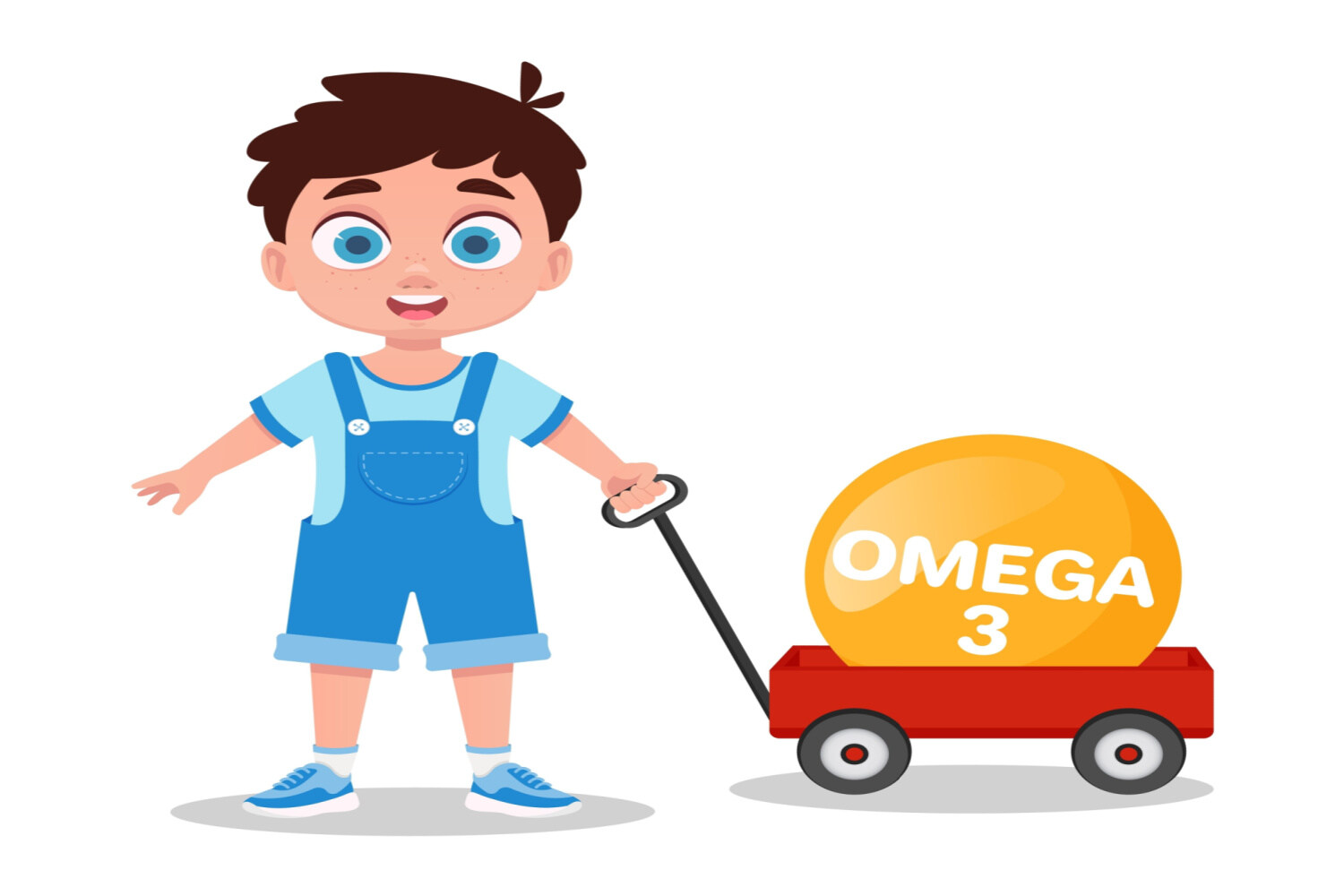
Parents are ready to go the extra mile for their kids. And, especially when it comes to their health and development, they want to ensure the best nutrition for their toddlers. One such key nutritional component is omega-3 fatty acids which holds an important place in a toddler’s growth and development. Omega-3 fatty acids for toddlers play an integral role in their development, contributing to heart health, brain function, and immunity (1).
Omega-3 is not synthesized by humans. Hence, it needs to be obtained from food and dietary sources. Toddlers require omega-3 for a complete healthy growth. Read this article to know more about omega-3 fatty acids, their importance for toddlers, and its sources.
In This Article
- What Are Omega-3 Fatty Acids?
- What is The Importance of Omega-3 Fatty Acids For Toddler Development?
- Top Benefits of Omega-3 Fatty Acids For Toddlers
- Are There Any Side Effects of Omega-3 Fatty Acids For Toddlers?
- What Are The Natural Sources of Omega-3 Fatty Acids?
- FAQ’s
What Are Omega-3 Fatty Acids?

Omega-3 fatty acids belong to a nutrient class, essentially required for normal body functioning (2). Omega-3 are fatty acids which help in proper cell function, and they are of three important types, namely, ALA, DHA, and EPA. The human body cannot produce these fatty acids and it can only be supplied through diet. They are basically polyunsaturated fatty acids offering great health benefits.
Eicosapentaenoic acid (EPA) and docosahexaenoic acid (DHA) are derived from marine sources and found in certain fish species. Whereas alpha-linolenic acid (ALA) is derived from plants. Our body receives calories which in turn provide us with energy that we require. They aid several functions in the immune system, lungs, endocrine system, heart, and blood vessels (3).
What is The Importance of Omega-3 Fatty Acids For Toddler Development?

Toddlers need omega-3 for their brain function and healthy growth. Omega-3 fatty acids help build cell membranes, ensure cardiovascular health, and fight inflammation. The DHA in omega-3 fatty acids is directly related to the development of the brain and visual system in toddlers. Omega-3 is essential for the functioning of the central nervous system clearing showing improvements in cognitive function. Omega-3 ensures good visual acuity in toddlers and shows an improvement in blood pressure and protects your toddler from early childhood allergies (4).
These fatty acids are a vital part of cell membranes, so they extend support toward the interaction between cells, and one can find a high level concentration of these fatty acids in the eyes and brain. It gives the body energy or calories which it needs. Being a polyunsaturated fat, omega-3 is a healthy alternative when compared with other saturated fat in the diet.
Top Benefits of Omega-3 Fatty Acids For Toddlers
Omega-3 fatty acids have incredible and powerful health benefits. They shield one against many chronic conditions, promote heart and brain health. Let’s take a look at some of the top benefits of omega-3 fatty acids that science supports-
1. Vision Health
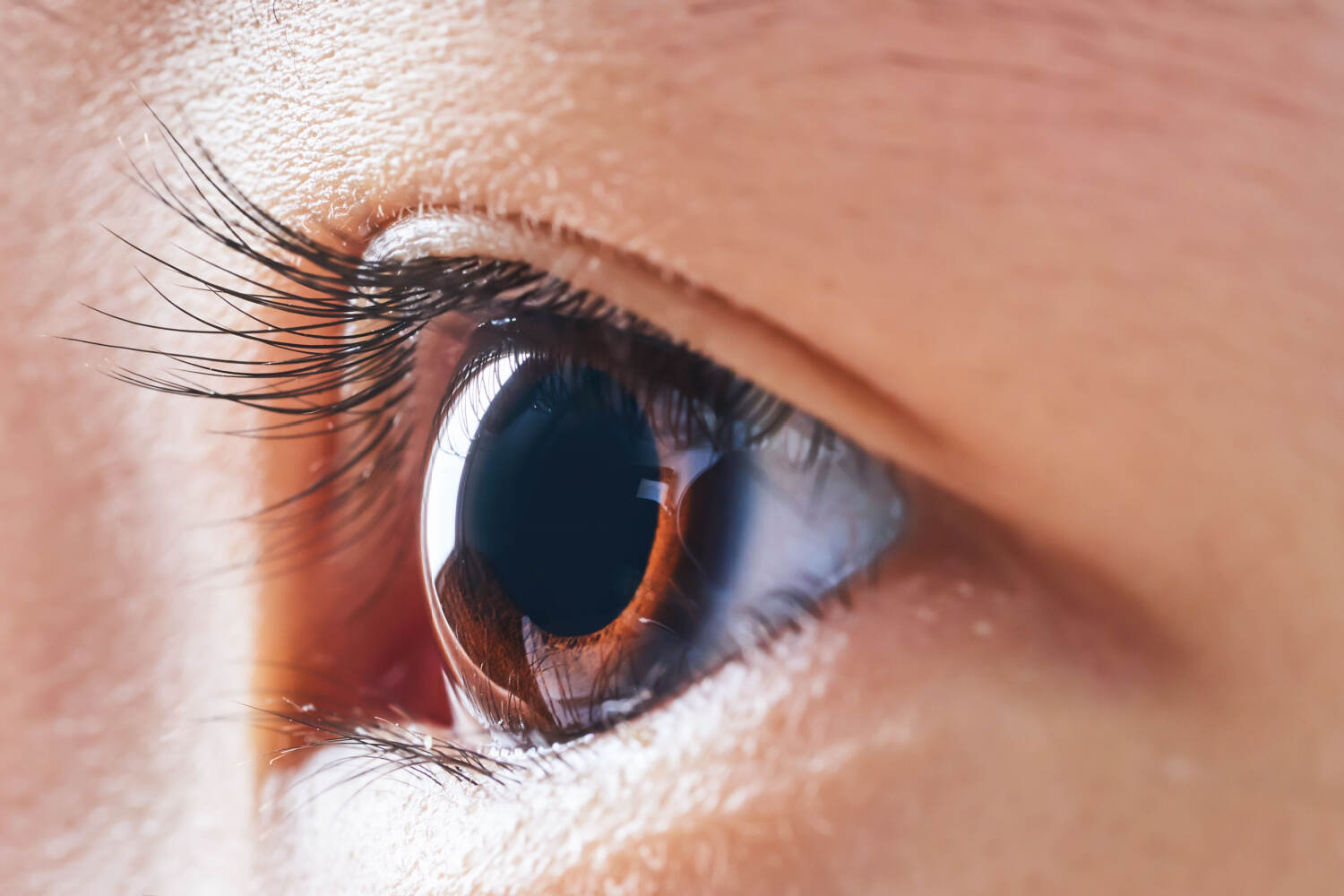
DHA is an important structural component of the retina in the eye. Omega-3 fatty acids insufficiency gives rise to vision problems. Having omega-3 may save toddlers from the risk of eye damage and blindness (5).
2. May Help to Improve ADHD Symptoms
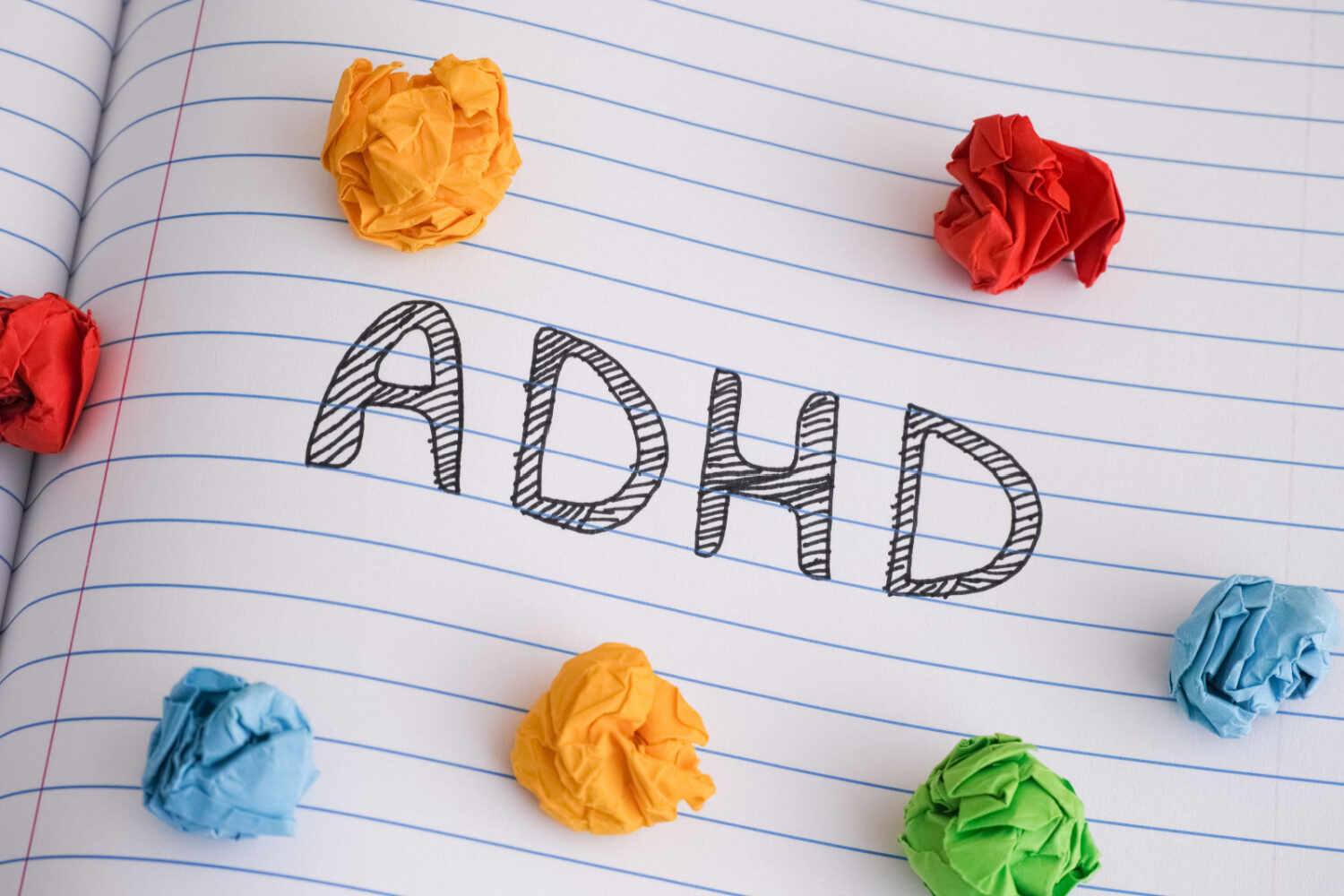
Omega-3 fatty acids may help improve symptoms of ADHD or attention deficit hyperactivity disorder. These fatty acids may help to decrease restlessness, hyperactivity, attention span, and impulsivity in toddlers suffering from ADHD (6).
3. Learning Abilities

Omega-3 fatty acids help to enhance the learning process, increase the ability to understand and reason, and use logical thinking. These fatty acids have a big impact on cognitive abilities and reasoning power (7).
4. Enhances Memory And Alertness
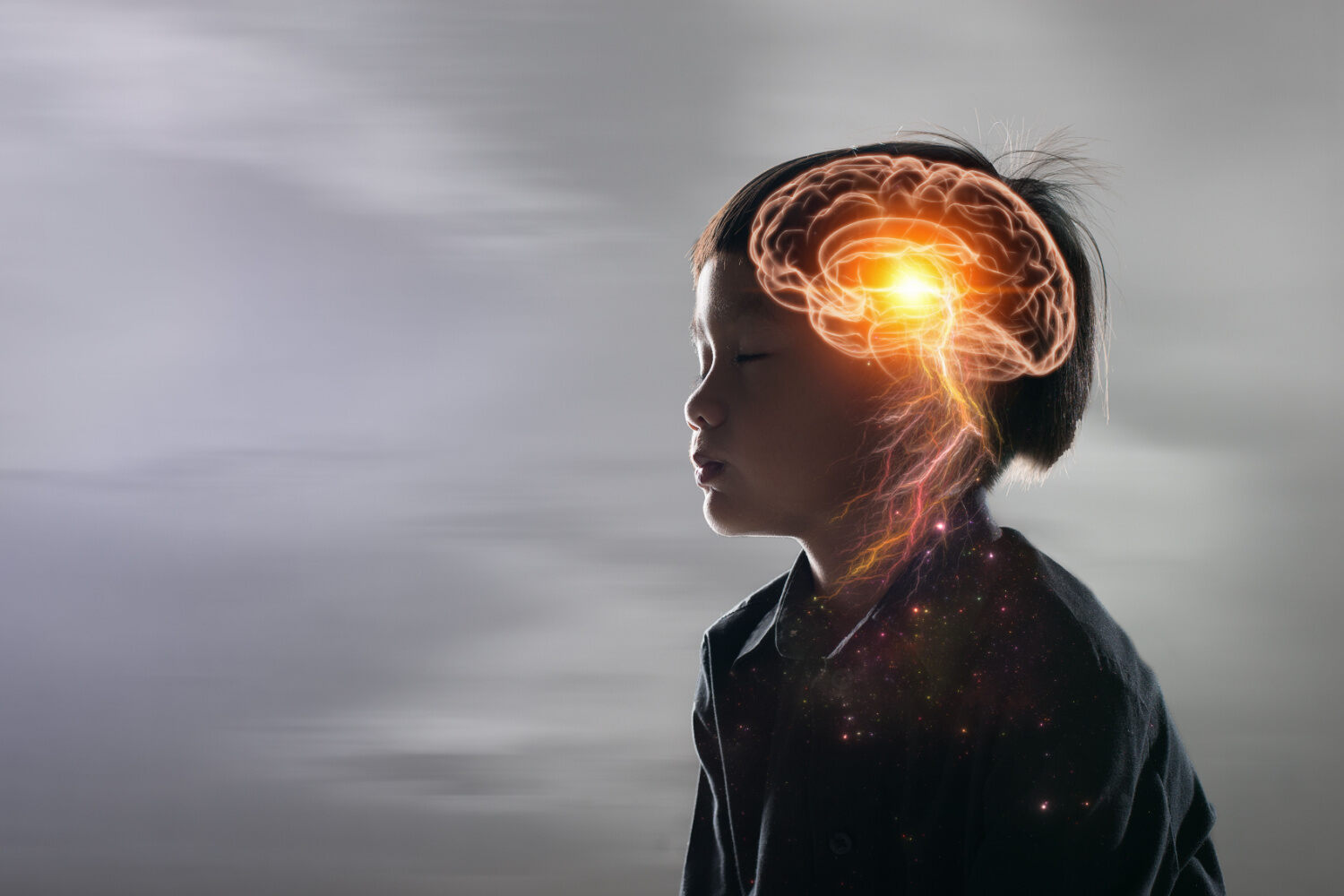
Throughout life, omega-3 fatty acids are essential for the brain. Omega-3 aids better communication between cells which is important for brain function. There is a boost of memory capacity and alertness (8).
5. Improves Mental Health

Omega-3 fatty acids may help prevent anxiety, depression and mood disorders in kids (9). The brain function is regulated by omega- 3 fatty acids, and they help preserve brain function as one grows older.
6. Increase in Immunity

The immune system protects the body from bacteria and viruses. Having sufficient levels of omega-3 increases the body immunity and coordinates and regulates the activity of immune cells (10).
7. Aids Better Sleep

Good sleep is an important criterion for optimal health. Deprivation of sleep is linked to several diseases. Consuming omega-3 fatty acids may improve sleep and protect the toddlers against sleep disturbances (11).
8. May Help Improve Asthma
Asthma is a chronic disease, which leads to breathing problems in kids and adults. It also causes coughing, wheezing, and chest pain. If your toddler has asthma, giving them omega-3 fatty acids may help to provide some relief from these symptoms. A study showed that asthma symptoms reduced in kids who took fish oil capsules (12).
Are There Any Side Effects of Omega-3 Fatty Acids For Toddlers?

Stay with the recommended dosage of omega-3 supplements which will naturally reduce the chances of any possible side effects. The daily consumption of omega-3 fatty acids should be less than 5 grams of EPA and DHA totally combined from your dietary supplements per day (13a). And, toddlers between the ages of 1 to 3 years need only 0.7 gm of ALA (13b). Here are some of the side effects of consuming omega-3 fatty acids-
- Bad breath
- Bad aftertaste
- Digestive issues- irritation of the gut because of the fat
- Diarrhea
- Nausea
- Headache
- Heartburn
What Are The Natural Sources of Omega-3 Fatty Acids?
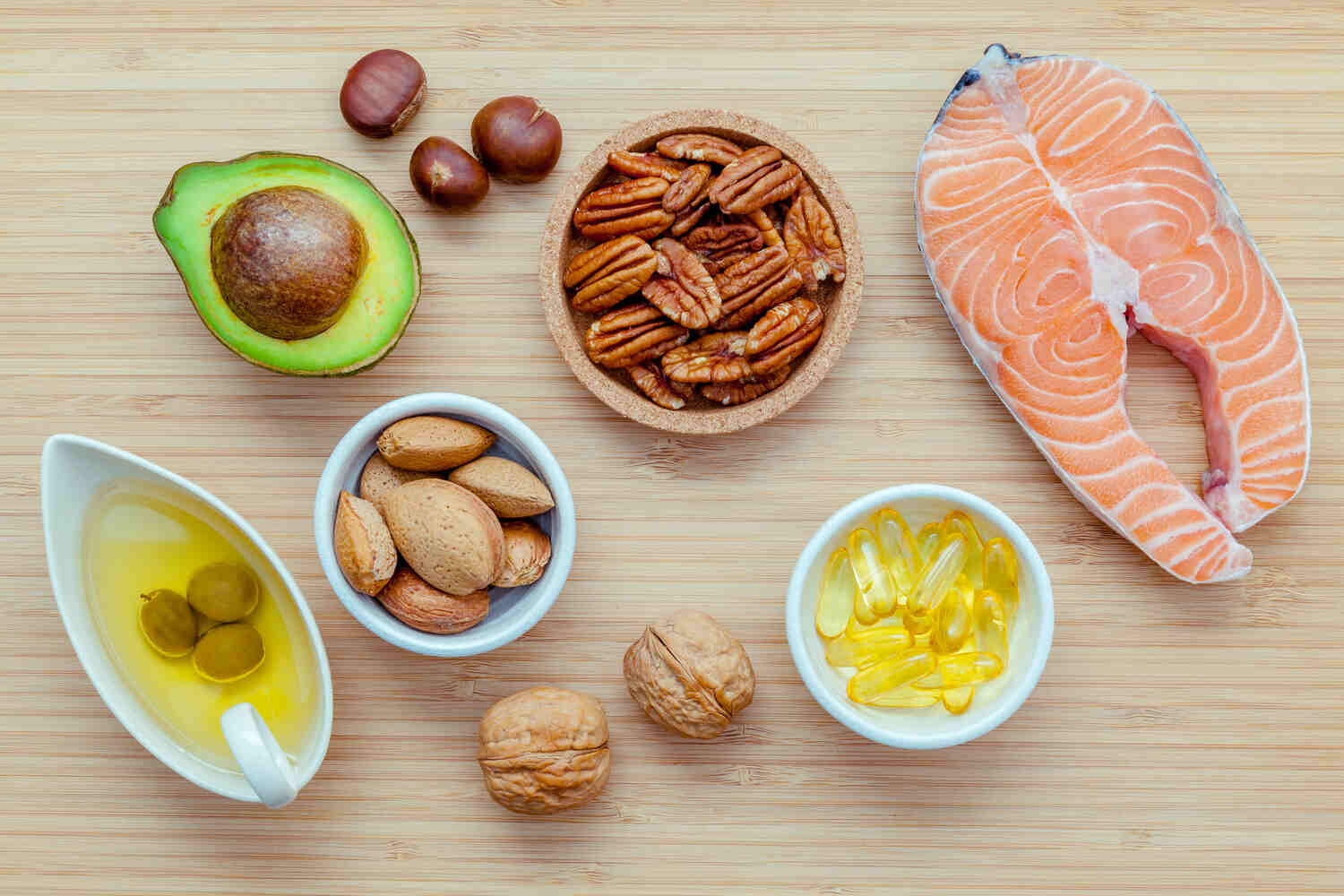
Omega-3 fatty acids can be obtained naturally from some food sources, as well as from supplements. Some of the natural sources of Omega-3 fatty acids are-
- Seafood – mackerel, salmon, tuna, herring, trout, cod, and sardines
- Fish oil
- Seeds and nuts like, flaxseed, chia seed, walnut
- Kidney beans
- Edamame
Omega-3 fatty acids for toddlers are essential for their growth and development. Giving your toddlers omega-3 is generally safe when given in the right amounts. You may notice that your toddler may shirk away from oily fish, nuts, and seeds for they are not always appetizing. That’s where the omega-3 supplements come into play. But, do remember to consult your doctor before giving any supplement to your toddler. Apart from a balanced diet, intake of omega-3 supplements will ensure good health for your toddler. They stay strong and reach their full potential with the addition of omega-3 fatty acids in their diet.
FAQ’s
1. What Are The Symptoms of Omega-3 Deficiency in Children?
Some symptoms of omega-3 deficiency include weak immunity, skin problems, vision issues, and poor wound healing. Children may experience hair loss, joint pain, brittle nails, and poor sleep as well.
2. Is Omega-3 Good For Autism?
Since autism causes frequent inflammation, omega-3 is good because it helps in reducing inflammation in the brain (14). It assists alongside lifestyle changes and a healthy balanced diet.
3. Do Toddlers Need DHA Supplements?
When your toddler is not getting enough DHA from their daily diet then it is essential to give them DHA supplements. There are reliable and safe DHA supplements which support growth and development and also aid in proper brain function and increases immunity.
References
- IN TIME: IMPORTANCE OF OMEGA 3 IN CHILDREN’S NUTRITION – [https://www.ncbi.nlm.nih.gov/pmc/articles/PMC5417803/]
- Omega-3 fatty acids – [https://medlineplus.gov/ency/imagepages/19302.htm]
- The science behind dietary omega-3 fatty acids – [https://www.cmaj.ca/content/178/2/177.short]
- Omega-3 fatty acids EPA and DHA: health benefits throughout life – [https://pubmed.ncbi.nlm.nih.gov/22332096/]
- Omega-3 Fatty Acids and Eye Health: Opinions and Self-Reported Practice Behaviors of Optometrists in Australia and New Zealand – [https://www.ncbi.nlm.nih.gov/pmc/articles/PMC7230711/]
- Do Omega-3/6 Fatty Acids Have a Therapeutic Role in Children and Young People with ADHD? – [https://www.ncbi.nlm.nih.gov/pmc/articles/PMC5603098/]
- Effects of Omega-3 Fatty Acid Supplementation on Cognition in Children – [https://www.sciencedirect.com/science/article/abs/pii/B9781630670368000123]
- Does Consumption of LC Omega-3 PUFA Enhance Cognitive Performance in Healthy School-Aged Children and throughout Adulthood? Evidence from Clinical Trials – [https://www.ncbi.nlm.nih.gov/pmc/articles/PMC4113767/]
- Omega-3 fatty acids in depression: a review of three studies – [https://pubmed.ncbi.nlm.nih.gov/19499625/]
- Effects of Omega-3 Fatty Acids on Immune Cells – [https://www.ncbi.nlm.nih.gov/pmc/articles/PMC6834330/]
- Fatty acids and sleep in UK children: subjective and pilot objective sleep results from the DOLAB study – a randomized controlled trial – [https://www.ncbi.nlm.nih.gov/pmc/articles/PMC4263155/]
- Dietary supplementation with fish oil rich in omega-3 polyunsaturated fatty acids in children with bronchial asthma – [https://pubmed.ncbi.nlm.nih.gov/11153584/]
- Omega-3 Fatty Acids – [https://ods.od.nih.gov/factsheets/Omega3FattyAcids-Consumer/]
- Omega-3 fatty acids in inflammation and autoimmune diseases – [https://pubmed.ncbi.nlm.nih.gov/12480795/]

